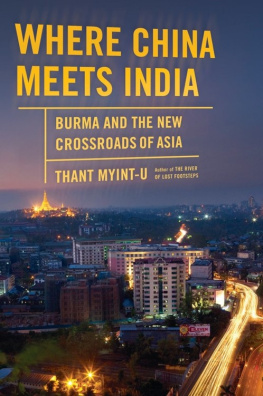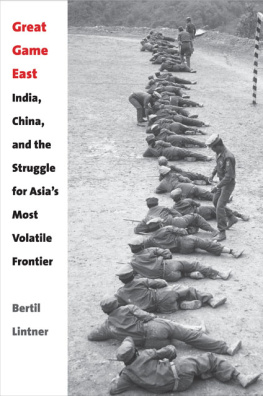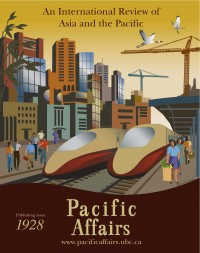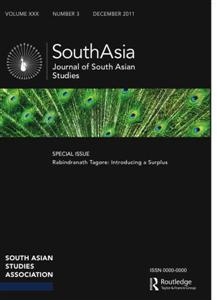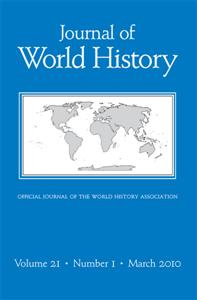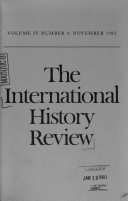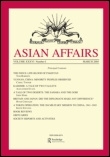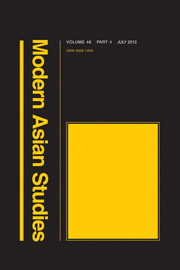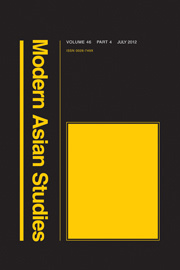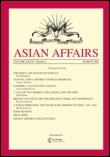Britain versus India in the Persian Gulf: The Struggle for Political Control, c. 1928-48
ROBERT J. BLYTH
The Journal of Imperial and Commonwealth History, Vol.28, No.l, January 2000, pp.90-111 PUBLISHED BY FRANK CASS, LONDON
[The Government of Indias] concentration inwards seemed to react disadvantageously on the more general outlook. There was in fact a sort of gilded parochialism in some sections of the official world which tended to obscure the wider setting.1
As the scale and scope of British responsibilities across the Middle East grew during and immediately after the Great War, the political control of the region presented a series of formidable challenges to policy-makers in London, Delhi, and Cairo. Not only did Britains interests in the Middle East encompass a vast swathe of disparate territories and embrace a variety of formal and informal relationships, they were also managed through a web of overlapping bureaucratic structures that involved several Whitehall departments and the British Government of India. Wartime exigencies had produced a very cumbersome administrative system, but after much deliberation the Masterton Smith committee streamlined this into a more workable, though still intricate, mechanism in the early 1920s.2 The mandates of Iraq, Palestine, and Transjordan, and the Aden Protectorate were under the Middle East Department of the Colonial Office, whereas Egyptian and Iranian affairs were entrusted to the Foreign Office. Around the Persian Gulf, the division of duties was further complicated as a consequence of the long-standing involvement of the Indian authorities, both in London and in New Delhi. The Colonial Office dealt with important oil questions and oversaw general Arab policy, including Britains relations with the Nejd; the Foreign Office handled Hejaz matters; and the Indian government, with its network of treaties and agents, supervised the affairs of the Gulf states. By the end of the 1920s, however, this arrangement -essentially a compromise accommodating rival views from within Whitehall and from British India - required further adjustment and another lengthy struggle over political control continued through the 1930s until after the Second World War.
The reorganization of political control entailed not only changes in the administrative apparatus within Whitehall, but a realignment of commitments within the Gulf itself. Foremost among these was the highly contentious Foreign Office scheme to relocate the British Political Residency from Bushire on the Iranian coast to Bahrain. This move came to dominate much of the negotiations between Delhi and London, and seemed to symbolize the different approaches, agendas, and aspirations of the imperial and Indian authorities. Progress towards the transfer and the establishment of a new system of control can conveniently be divided into three distinct stages. The first, from 1928 until 1933, covers the collapse of the peacetime compromise over administration, the removal of the Colonial Office from a central role in the Persian Gulf, and the creation of a new bureaucratic structure. At this point, the struggle over the future political control of the region largely became a battle between the Indian authorities and the Foreign Office. Both were keen to expand the scope of their operations in the Gulf as part of their individual reactions to the problems presented by the end of the Iraq mandate and by the growing importance of the Arabian littoral to the metropole. The second stage, from the early 1930s until 1945, saw increased efforts by the Foreign Office to remove the Indian authorities from the region, and the obstruction of the transfer scheme. The final period witnessed the transfer itself and the development of a new postwar, and post-Indian independence, mechanism for British control of the Gulf.
At each stage of the process, friction arose between the Indian and imperial governments over their divergent geographical and temporal perspectives, and over the political, bureaucratic, and financial implications of the various proposals for the Persian Gulf. The well-established regional outlook of British India was challenged by the more global view of Whitehall. Similarly, the generally reactive and short-term planning of Delhi was in sharp contrast to the arguably more methodical, far-sighted, and flexible approach of the Foreign Office. The move from Bushire to Bahrain was more than a measure for administrative convenience, it was part of larger debate on political control and was a symptom of change in the British connection with the Persian Gulf during the second quarter of the twentieth century. But beyond the problems of the Middle East, this episode was also the final stage in a much longer conflict between Delhi and the metropole over the shape and function of the Indian governments external responsibilities around the western Indian Ocean.3
I
The Persian Gulf, athwart the route from Europe to the East, was a natural field of operations for British India. Beyond strategic interests, the East India Company pursued trading links, and began the long-term association with Bushire in the mid-eighteenth century. By the end of the nineteenth century, the station had become the nodal point for the British trucial system around the Gulf, and a key component in British Indias sphere of external obligations in the Middle East stretching from Aden to southern Iran. Gulf affairs were supervised by the Political Resident from his base at Bushire. The Resident was an officer of the Indian Political Service and responsible to the Government of India and, ultimately, the Secretary of State for India in London. Although the Gulf was primarily a concern of the Indian government, there was a degree of metropolitan involvement in the region, especially through Britains mission in Tehran under the control of the Foreign Office. Indeed, the Political Resident was also the British consul at Bushire and, in that capacity, answerable to the Foreign Office. While this dual function, combined with Britains interest in Iran, meant that the metropole was embroiled in the political control of the Gulf, in practice, the region remained firmly within the Indian sphere before the Great War.4
Neither the scope of the Government of Indias external commitments nor the particular circumstances of the Persian Gulf remained static. In the last quarter of the nineteenth century, the changing international situation in the western Indian Ocean brought the region more and more into the orbit of metropolitan policy. The responsibility for the conduct of relations with territories such as Zanzibar and the Somali Coast, which had previously been within the British Indian sphere of operations, was transferred to Whitehall as the scale of imperial interests came to eclipse purely Indian concerns. While the Indian government was glad to be relieved of some troublesome peripheral obligations, metropolitan pressure grew in areas where Delhi was reluctant to withdraw. At Aden, for example, successive Indian governments were certain of the importance of the station to India and resisted efforts for greater control by London. But before 1914 the Gulf had not attracted the same predatory attention from Whitehall as the Red Sea area. Nevertheless, the steady growth of oil exploration introduced a new dimension to Britains connection with the region; and after the war petroleum and the operation of strategic air routes were to become major factors influencing the future development of British policy.
During the Great War the range of metropolitan activities and interests in the Middle East expanded as the conflict spread across the region. Whitehall became convinced of the need to centralize the military and political control of operations in London to avoid confusion and delay. To this end, Delhi was encouraged to relinquish direct involvement in Middle East affairs; and imperial planners achieved a measure of success.5 But excessive bureaucratic difficulties and insoluble political problems quickly bogged down Britains schemes for the Middle East; the imperial will to accomplish centralization and the British Indian willingness to withdraw rarely coincided. Plans for a separate Middle East Office proved impractical and were shelved. By 1921, and the report of the Masterton Smith committee, an accord had been reached between the feuding departments, agencies, and governments involved in the region which determined the form of British control until the early 1930s. In essence, the struggle over political control in the Persian Gulf from 1928 until 1948 was part of the process of amending the Masterton Smith arrangement to create a more endurable solution to the problems arising from Britains presence in the Middle East.


